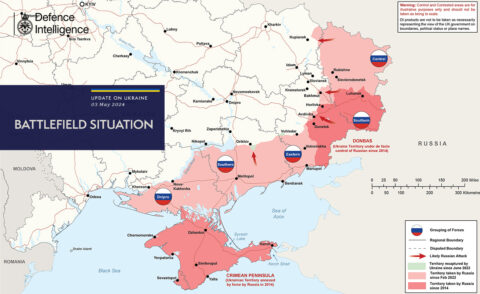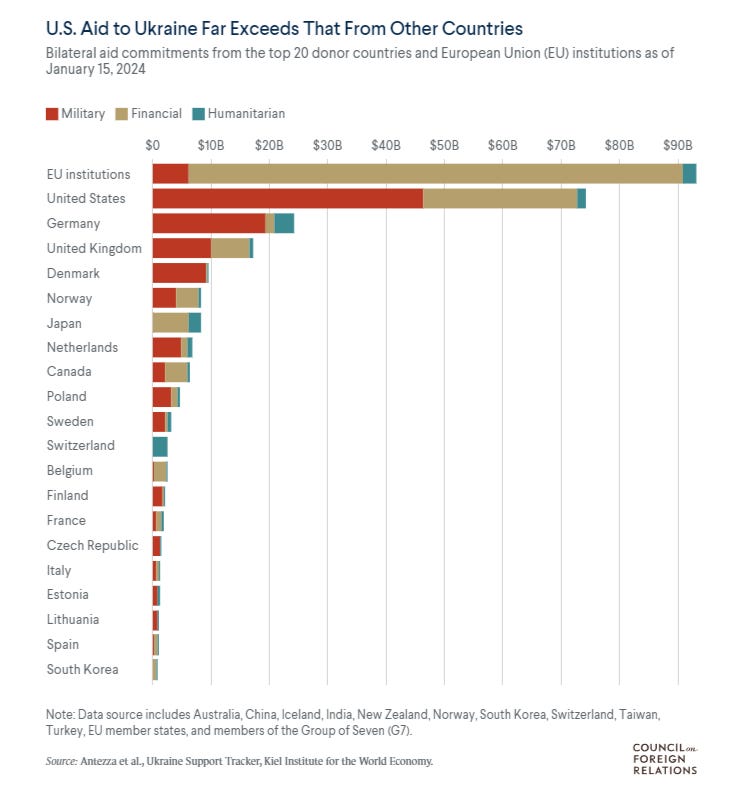Kulak suggests that far from being a model for future wars, the ongoing conflict in Ukraine may not prefigure anything at all about future wars:
Few weeks go by where I don’t read a piece on how Ukraine is the Future of warfare and armies and thinkers need to adjust to the reality that the warfare of the future will involve massive unaccountable amounts of artillery, trenches, conscription and grinding warfare.
While sometimes they point to relevant lessons: Yes the inability of the US to quickly reindustrialize and produce artillery shells at a rate comparable to Russia does speak to a profound rot in American governance, the military industrial complex, and American business regulation more generally,
Often times the conclusions drawn are dangerously delusional: A draft would be more likely to break the American nation than save it. As indeed conscription has resulted in Ukraine’s population collapsing with somewhere between 6 and 10 million Ukrainians (out of a pre-war 36 million) having fled the country, not to escape the mostly static war, but to escape the Totalitarian conditions the Zelensky regime has imposed in response to the war. (1.1 million of whom escaped INTO Russia, for any who deny this [is] largely an ethnic conflict between Western and Russian Ukrainians, as it has been since 2014).
And the thing is all of these discussions rest on a assumption that seems ludicrous the second you stop and think about it: Ukraine is not the future of Warfare, these conditions will be almost impossible to ever create again.
Ukraine had a pre-war Nominal GDP of 199 billion USD. Officially this only declined to 160 billion in 2022 as a result of the war, but there’s good reason to think its actual internal private sector economy collapsed far further [given] it had collapsed from 177 billion in 2013 to 90 billion in 2015 as a result of the US backed Coup/Revolution.
Indeed given the population flight, conscription, and impositions on the populace, it is very likely a SUPER-MAJORITY of that 160 billion GDP in 2022, was actually the result of US and NATO pouring hundreds of billions into the country. Where it was either used or siphoned off as corruption.
Simply put Ukraine has received military, financial and other aid most like in excess of what its entire internal economy produced in the same period, and as of writing it’s still losing territory.
When commentators say this is a war between NATO and Russia they are almost entirely correct. If you combine all the economies that are funding, arming, or fighting on one side or the other of this war you get a majority of the entire global economy.
And they have used all that money to pay off the Ukrainian regime to refuse any peace agreement, even ones their own negotiators had agreed to, and that were clearly in the best interest of the country … you know if you value hundreds of thousands of young men and not having your population collapse more than narrow stretches of land being bought up by Blackrock.









